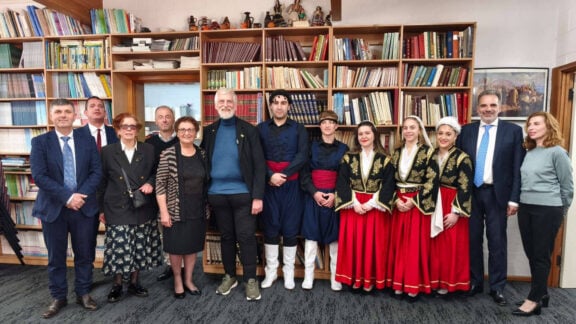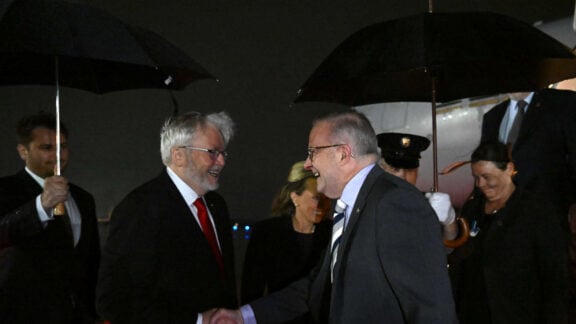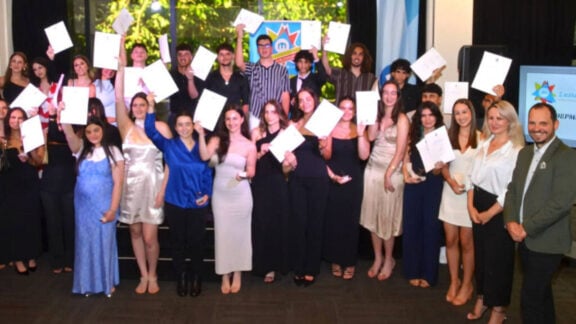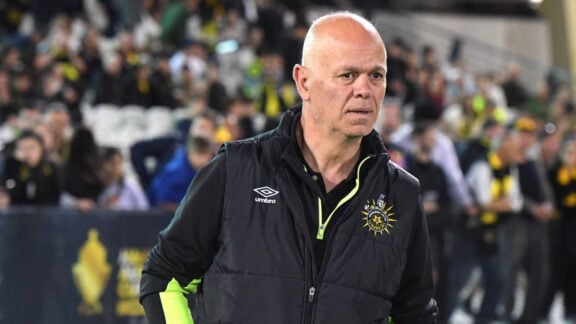On the Wednesday before Easter, as I was writing up my interview with Peter Dutton for Neos Kosmos, I began to faint. Despite any natural instincts, Dutton is not to blame. He was pleasant, and I believe the distance between his views and those of the PM is less vast than most partisans like to think. There lies the great strength of our liberal democracy: often, there isn’t much difference between the major parties, no matter what partisans claim.
Anyway, I blacked out again and again. My wife and son rushed me to Austin Hospital despite my protests. We were preparing for the Good Friday feast with her Spanish side and the Greek Anastasi with mine. Not that I’m a theist, but I love tradition, especially those that lead to gatherings, parties, revelry—or, like this one, renewal.
In the emergency department, I fainted up to fifteen times. Once, my heart stopped for three seconds.
In one episode, I was transported to a world of saturated colour and fantasmic images — the Beatles’ Yellow Submarine. Not bad, — except for the dying bit. Had I not come back, it was a great dying.
They rushed me into resuscitation. Tests followed — ultrasounds, MRIs, bloods. As Zorba would say, “the full catastrophe.”
Diagnosis, syncope, and a fast-track resurrection
Physically, my heart was fine. My brain, (physiologically), was fine. But electrically, my heart was misfiring — syncope, another Greek word, meaning a sudden, sharp cut. I had a pacemaker by Thursday and was resurrected faster than the Nazarene.
In 2022, the former Victorian minister Philip Dalidakis told me, “You could have been writing my obituary,” after he needed unexpected heart surgery with no prior symptoms. Dalidakis who is Greek-Jewish, kept nagging me to get my heart checked and I dismissed it as classic Greek-Jewish fatalism — the worst kind of grinia. Now, I had to admit to him, “I should have listened to you, mate.”
Dalidakis who is Greek-Jewish, kept nagging me to get my heart checked and I dismissed it as classic Greek-Jewish fatalism — the worst kind of grinia. Now, I had to admit to him, “I should have listened to you, mate.”

By Easter Sunday, I was reborn and then the Pope died all a bit spiritual, yet, the materialist in me — too much Aristotle, Mill, Hegel, Marx, Weber — recognises that my revival was due to the Enlightenment. A rebirth of Hellenic logic and Judaic morality, fused with science — the core values that underpin our national health system.
Even back in the 1980s, as a Keating acolyte denouncing “unreconstructed Whitlamites,” listening to Prince and Hunters & Collectors, smoking too much of everything, and downing cheap pints at uni — I conceded, Whitlam’s Medibank (later Medicare) is one of Australia’s greatest and most enduring achievements.
A universal public health system, funded by our taxes. Flexible enough to allow for a subsidised private system for those who want better meals and single rooms — but still on the same plane, flown by the same pilots.
My resurrection took nurses, technicians, cardiologists, and surgeons and extremely expensive technology. It cost me $7 — for five Oxycontin tablets.
Tradition, music, and the aspic of time
The most poignant moment came Saturday night before Easter. Normally, we’d be getting ready for the midnight service at the Greek church, waiting to receive the holy light at 12, chanting Christos Anesti, cracking eggs, eating avgolemono — αυγολέμονο — egg and lemon chicken soup.
But that night, my wife and I lay in the dark, waiting for our son and his girlfriend to return from church. They went just to maintain some tradition — broken by my heart this Easter. We listened to music — really listened — for the first time in decades. Dylan’s One More Cup of Coffee (Before I Go), Bowie’s Joe the Lion, Nusrat Fateh Ali Khan and Michael Brook’s My Heart, My Life — the closest one can get to God as a non-believer. It all made sense.
“We haven’t done this since we were young, living in Fitzroy in 1997, before Tasso,” (our son) my wife said.
“When we really listened.”
Music bathed us and mingled with our tears in the dark. Liminal memories trapped in the aspic of time.
“It’s life, it’s death… will I be normal again?” I asked.
“You’ve never been normal,” she replied. “That’s why I love you.”
I suspect there will be more cups of coffee before I “go to the valley below,” to paraphrase Mr Zimmerman.









